Oceans
-
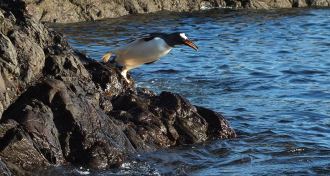 Animals
AnimalsA gentoo penguin’s dinner knows how to fight back
Cameras attached to gentoo penguins off the Falkland Islands revealed that, despite the birds’ small size, their lobster krill prey can sometimes win in a fight.
-
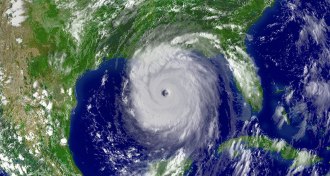 Climate
ClimateChances of an Atlantic hurricane season busier than 2005’s are slim — for now
The 28 named tropical storms that swirled through the Atlantic Ocean in 2005 is about as many as the region can produce in a year.
-
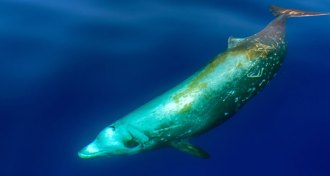 Oceans
OceansBeaked whales may frequent a seabed spot marked for mining
Grooves in the seafloor may signal that whales visit a region that is a prime target for future seabed mining.
-
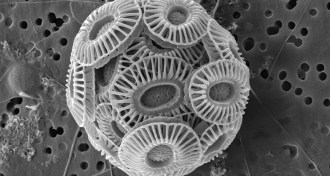 Oceans
OceansViruses may help phytoplankton make clouds — by tearing the algae apart
Sick phytoplankton shed their calcium carbonate plates more easily than their healthy counterparts, which could play a role in forming clouds.
-
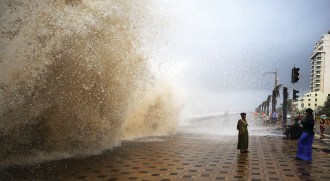 Climate
ClimateAs waters rise, coastal megacities like Mumbai face catastrophe
For coastal megacities like Mumbai, rising seas and weather chaos linked with climate change threaten economic and social disaster.
By Katy Daigle and Maanvi Singh -
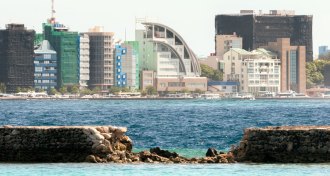 Earth
EarthWhy sea level rise varies from place to place
The impact of global sea level rise varies regionally, thanks to these factors.
By Katy Daigle and Carolyn Gramling -
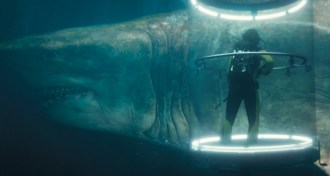 Paleontology
PaleontologyWhat ‘The Meg’ gets wrong — and right — about megalodon sharks
A paleobiologist helps Science News separate shark fact from fiction in the new Jason Statham film The Meg.
-
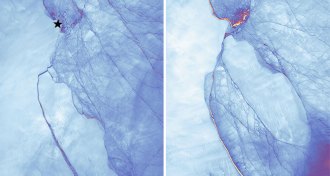 Earth
EarthThe giant iceberg that broke from Antarctica’s Larsen C ice shelf is stuck
A year ago, an iceberg calved off of the Larsen C ice shelf. The hunk of ice hasn’t moved much since, and that has scientists keeping an eye on it.
-
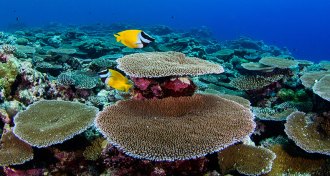 Oceans
OceansShallow reef species may not find refuge in deeper water habitats
Coral reefs in deep-water ecosystems may not make good homes for species from damaged shallow reefs.
-
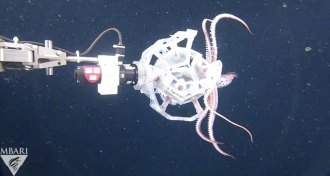 Animals
AnimalsNew ‘Poké Ball’ robot catches deep-sea critters without harming them
A machine that gently catches and releases animals underwater could help researchers take a more detailed census of the deep sea.
-
 Paleontology
PaleontologyAn ancient swimming revolution in the oceans may have never happened
Swimmers may not have suddenly dominated the oceans during the Devonian Period after all: New analyses suggest they took over much more gradually.
-
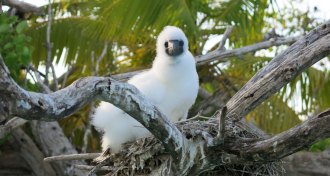 Ecosystems
EcosystemsBird poop helps keep coral reefs healthy, but rats are messing that up
Eradicating invasive rats from islands may help boost numbers of seabirds, whose droppings provide nutrients to nearby coral reefs.